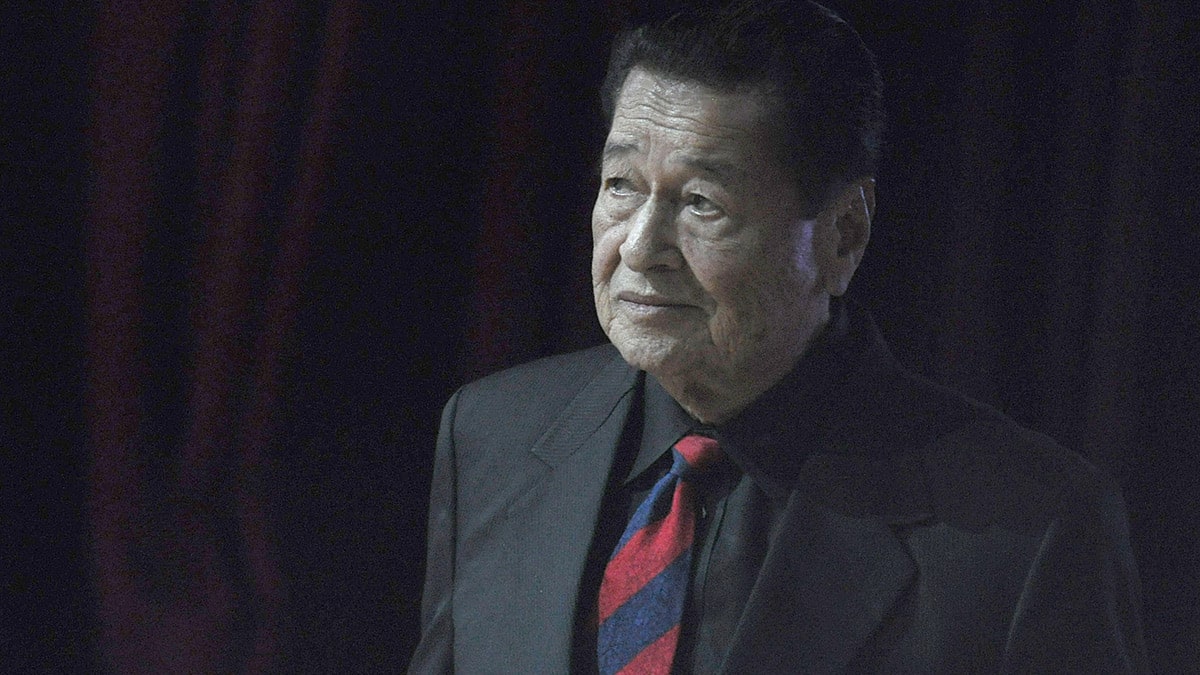Eddie Garcia Law enacted: Safety first in show biz
Almost five years after actor and director Eddie Garcia died in a TV production accident, a law named in his memory is now in place to ensure the welfare of workers in the film and television industry.
Signed on May 24 by President Marcos, Republic Act No. 11996 or the “Eddie Garcia Law” requires employers to look after their workers’ safety and well-being, starting with terms related to work hours, worksite conditions, wages, benefits and insurance coverage spelled out in contracts.
One of the major provisions sets a standard daily eight-hour work schedule that is extendable to a maximum of 14 hours, inclusive of meal periods, or a maximum of 60 hours per week.
The law also requires a regular review of the working conditions in the industry “to ensure that workers are provided opportunities for gainful employment or work engagements and decent income, and are protected from abuse, harassment, hazardous working conditions and economic exploitation.”
Employers are also required to strictly comply with the provisions of RA 11036 or the Occupational Safety and Health Standards Act.
They should designate a safety officer who will conduct risk assessments of the workplace or shooting location to identify, eliminate or control any potential environmental or structural hazard.
Fine up to P500,000
Employers should also ensure that workers are made aware of potential hazards, and hold a meeting with them before the start of a shoot to identify safety and health issues.
They should also require workers to wear or use the necessary safety equipment and protective devices.
Violations of these provisions are penalized with a maximum fine of P100,000 for the first offense, up to P 200,000 for the second offense, and up to P500,000 for the third and succeeding offenses.
Separate versions of RA 11996 were filed in both the Senate and the House of Representatives shortly after Garcia’s death on June 20, 2019.
The then 90-year-old movie icon tripped on a cable while shooting an episode of a TV series, causing him to fall to the ground, his head hitting the pavement. Rendered unconscious, he died after 12 days of confinement at Makati Medical Center.
Garcia’s accident and subsequent death drew attention to the lack of safety protocols in the film and TV industry, especially in outdoor filming locations. One immediate observation was the absence of a medical team or ambulance that should be on standby.
‘Manoy’ is honored
In a statement welcoming the law’s enactment, Speaker Martin Romualdez said the new measure was “our promise to do better by our actors, crew members, and everyone who brings our stories to life.”
“For ordinary Filipinos, this law means more than just new rules and regulations. It means that their safety, their rights, and their well-being are being taken seriously. It means that when they step onto a set, they can do their jobs with the confidence that they are protected and valued,” he said.
Garcia’s family, through his stepson, 1-Pacman Rep. Mikee Romero, thanked the President for “honoring the life of Manong Eddie, ‘Manoy’ to family and friends, and his contributions to the entertainment industry.”
“Manong Eddie’s untimely death was not in vain with the enactment of the law bearing his name,” said Romero, the principal author of the House version of the bill.
“Finally, we have a law that ensures better safety and working conditions for industry workers, regulates working hours, mandates welfare benefits, provides insurance coverage, and grants the right to collective bargaining,” said Sen. Jinggoy Estrada, himself a former actor, who sponsored the measure as chair of the Senate committee on labor.
Not all cheers
However, some show biz personalities, like veteran actor Leo Martinez, were not as satisfied.
In a vlog posted earlier this month, Martinez, who once served as the director general of the Film Academy of the Philippines, questioned why the law sets a 60-hour minimum workweek when the Department of Labor and Employment only requires a standard of 40 hours and maximum overtime of eight hours.
Also missing from the final, approved version of the law was a provision stating that senior citizens may be made to work only eight hours per week.
New ‘symbol’
In a statement, Sen. Grace Poe said the new law should put an end to unfair, unsafe and unsustainable working conditions for entertainment industry workers.
“Our workers behind the camera or the stage are also important. Without them, there are no movie stars. As the industry progresses, they should be included among those who are being paid well, protected while they do their work, and given the opportunity to grow and be better at what they do,” said Poe, the daughter of screen legends Fernando Poe Jr. and Susan Roces.
“ We will always be grateful to one of the Philippines’ greatest actors, Eddie Garcia, who has now become a symbol of the fight for the entertainment workers’ rights and welfare,” she said. INQ
